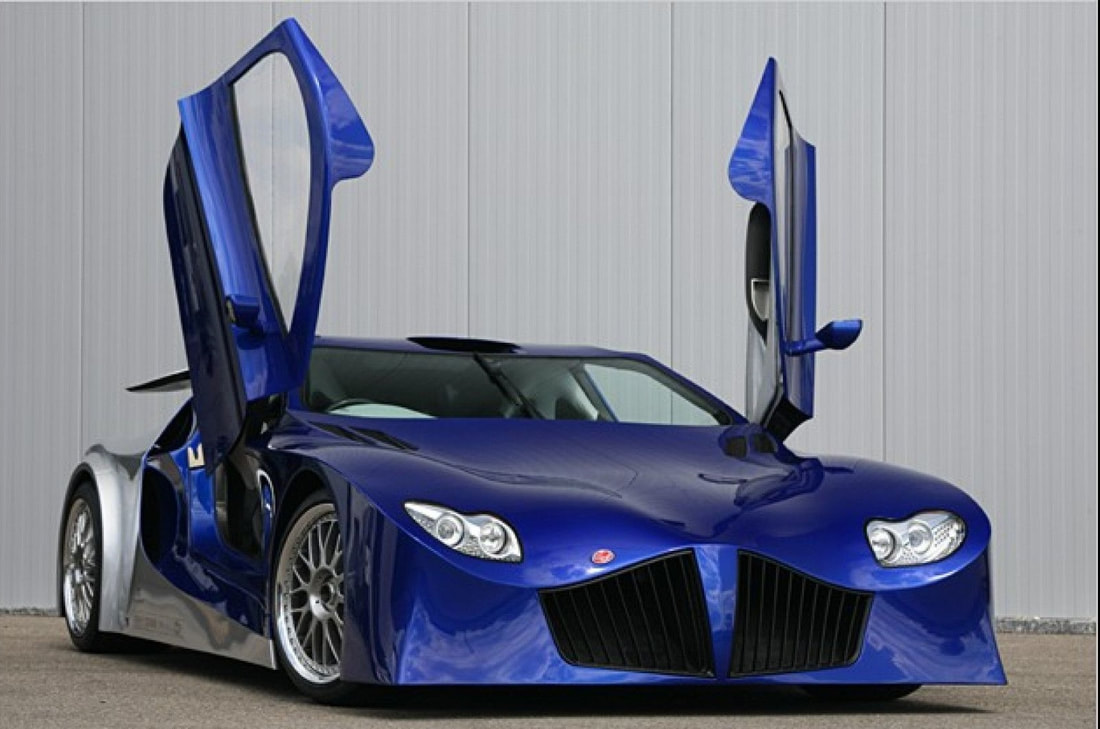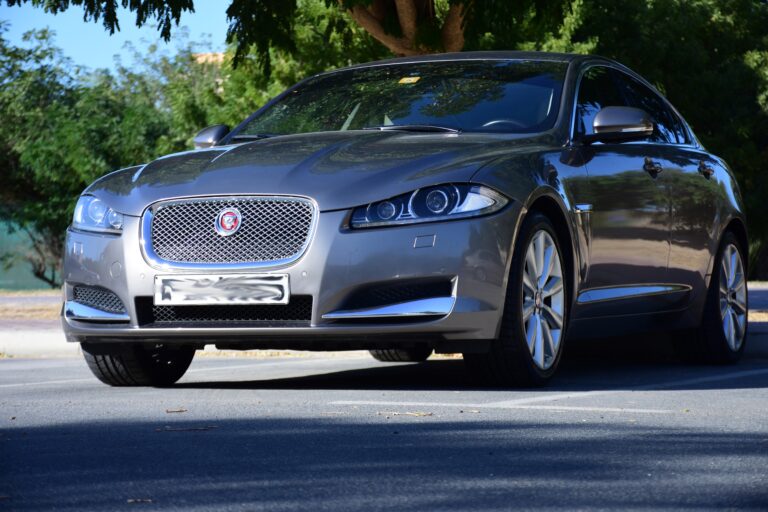Swiss Car Brands: Precision, Innovation, and the Alpine Automotive Spirit
Swiss Car Brands: Precision, Innovation, and the Alpine Automotive Spirit cars.truckstrend.com
When one thinks of global automotive powerhouses, names like Germany, Japan, the United States, or Italy often come to mind, synonymous with iconic brands and vast production lines. Switzerland, renowned for its unparalleled precision engineering, luxury watches, pristine landscapes, and banking prowess, might not immediately surface in the automotive conversation. Indeed, the concept of "Swiss Car Brands" in the traditional sense – mass-market manufacturers producing vehicles for global consumption – is largely a myth. However, to dismiss Switzerland’s role in the automotive world entirely would be to overlook a fascinating history of niche excellence, groundbreaking innovation, and a pervasive influence on the industry’s underlying components and design philosophy.
This article delves into the unique reality of Swiss Car Brands, exploring why Switzerland hasn’t become a major car producer, highlighting the historical and contemporary entities that do represent Swiss automotive ingenuity, and demonstrating how the country’s meticulous approach to engineering contributes significantly to the global automotive landscape. It’s a story less about quantity and more about unparalleled quality, bespoke craftsmanship, and forward-thinking innovation.
Swiss Car Brands: Precision, Innovation, and the Alpine Automotive Spirit
The Myth and Reality of Swiss Automotive Production
Switzerland’s economic landscape is characterized by high wages, a small domestic market, a strong currency, and a strategic focus on high-value, specialized industries such as pharmaceuticals, finance, luxury goods, and precision machinery. These factors inherently make mass-scale automotive manufacturing, which relies heavily on economies of scale and often lower labor costs, an unviable proposition. Unlike countries with large domestic markets and established industrial bases conducive to mass production, Switzerland never developed the necessary infrastructure or economic incentives for widespread car manufacturing.
However, this absence of mainstream brands doesn’t mean Switzerland lacks an automotive identity. Instead, its contribution lies in the realm of the exceptional, the bespoke, and the components that power and refine vehicles worldwide. It’s a testament to the Swiss dedication to quality over quantity, where innovation is often born from a desire for perfection and specialized solutions.
Glimpses of Swiss Automotive Heritage: Historical and Niche Manufacturers
While not producing cars for the masses, Switzerland has been home to several remarkable automotive ventures that embody the nation’s spirit of precision, luxury, and avant-garde design.
Monteverdi: The Epitome of Swiss Luxury Sports Cars
Perhaps the most significant and recognizable name in Swiss car manufacturing is Monteverdi. Founded by Peter Monteverdi in Basel, Switzerland, in 1967, the company produced ultra-exclusive luxury sports cars and sedans. Monteverdi vehicles were known for their elegant European styling, often featuring coachwork by renowned Italian design houses like Frua, and powerful American V8 engines (typically Chrysler).
Monteverdi aimed to compete with established luxury brands like Ferrari, Maserati, and Aston Martin, offering a blend of opulent interiors, robust performance, and impeccable build quality. Models like the High Speed 375 series (375S, 375L, 375C, 375/4) and the Safari and Sahara SUVs (pioneering luxury SUVs before their time) showcased the brand’s ambition. Production was always limited, making these cars highly sought-after collector’s items today. Monteverdi ceased car production in 1984, but its legacy as Switzerland’s most prominent luxury car manufacturer endures.

Rinspeed: The Visionary Concept Car Creator
Moving from historical luxury to futuristic innovation, Rinspeed stands as a beacon of Swiss automotive ingenuity. Founded by Frank M. Rinderknecht in 1977, Rinspeed is not a traditional car manufacturer but rather a design and engineering think tank renowned for creating highly imaginative and often radical concept cars. These vehicles are unveiled annually at major international motor shows, particularly the Geneva Motor Show.
Rinspeed concepts are less about production readiness and more about exploring cutting-edge technologies, sustainable solutions, and future mobility paradigms. From amphibious cars (sQuba) and autonomous vehicles that double as living spaces (Oasis) to cars made from recyclable materials (Bamboo) and those with innovative human-machine interfaces, Rinspeed consistently pushes the boundaries of what a car can be. Their creations showcase Swiss precision in integrating complex systems, pioneering new materials, and envisioning the automotive future.
Sbarro: The Artisan of Bespoke Automotive Creations
Franco Sbarro, an Italian-Swiss designer and constructor, established his design studio and technical school, ACAT Sbarro, in Switzerland. Sbarro is famous for creating unique, often outlandish, and technically fascinating bespoke vehicles and concept cars. His work ranges from replicas of classic sports cars to highly original prototypes, often featuring unconventional layouts, innovative mechanics, and striking aesthetics.
Sbarro’s creations are hand-built, one-off masterpieces that serve as a testament to individual craftsmanship and experimental engineering. The Sbarro school also plays a crucial role in educating future automotive designers and engineers, ensuring that the spirit of innovative, bespoke automotive creation continues to thrive in Switzerland.
The True Swiss Contribution: Engineering Excellence Beyond the Badge
While full-scale car manufacturing is rare, Switzerland’s influence on the global automotive industry is profound, primarily through its specialized engineering and component manufacturing.
- Precision Components: Swiss companies are world leaders in producing high-precision components that are vital for modern vehicles. This includes everything from sophisticated electronic sensors and control units to high-performance bearings, specialized gears, and intricate interior mechanisms. The same precision that goes into a Swiss watch is applied to these critical automotive parts, ensuring reliability and performance.
- Luxury and Bespoke Design: Swiss designers and engineers are often sought after for their meticulous attention to detail and their ability to craft luxurious and highly refined interiors. Many high-end automotive brands collaborate with Swiss firms for interior design, material selection, and infotainment system integration, leveraging Switzerland’s reputation for quality and understated elegance.
- Innovation in Future Mobility: Switzerland is a hub for research and development in emerging automotive technologies. Start-ups and established firms are active in areas such as electric vehicle battery technology, advanced driver-assistance systems (ADAS), autonomous driving software, lightweight materials, and sustainable manufacturing processes. The country’s strong academic institutions and supportive innovation ecosystem foster these advancements.
- Motorsports Involvement: Switzerland has a notable presence in motorsports, particularly through teams like Sauber (now Sauber Motorsport AG, which operates the Stake F1 Team Kick Sauber). While not a car brand in itself, the engineering prowess and technical expertise housed within these organizations contribute significantly to automotive development, pushing the boundaries of aerodynamics, engine performance, and chassis design.
Why Switzerland Isn’t a Mass-Market Car Producer
The reasons for Switzerland’s distinct position in the automotive world are multi-faceted:
- High Labor Costs: Switzerland has one of the highest average wages globally, making labor-intensive manufacturing processes like car assembly economically unfeasible for mass production.
- Small Domestic Market: With a population of around 8.8 million, the domestic market is too small to support large-scale automotive production independently.
- Strong Currency: The Swiss Franc’s strength makes exports more expensive, further hindering competitiveness in global mass markets.
- Focus on High-Value Industries: Switzerland’s economic strategy prioritizes industries where it can command premium prices for specialized products and services, rather than competing on volume or cost.
- Environmental Consciousness: A strong emphasis on environmental protection and sustainable living may also subtly influence a disinterest in becoming a major manufacturing hub for high-emission industries.
Practical Advice and Actionable Insights
For those interested in "Swiss Car Brands," practical advice centers not on purchasing new mass-market vehicles, but on appreciating the unique contributions Switzerland makes to the automotive world:
- Seek Out Swiss Precision: When considering a new vehicle, research which components (e.g., turbochargers, specific electronics, interior modules) might have Swiss origins. Many high-end cars subtly integrate Swiss engineering without bearing a Swiss badge.
- Explore Automotive History: If you are a collector or enthusiast, research historical Monteverdi vehicles. They represent a fascinating chapter in luxury car manufacturing and are highly prized for their rarity and craftsmanship.
- Follow Concept Car Innovation: Keep an eye on Rinspeed’s latest concepts. They offer a glimpse into potential future technologies and design philosophies that may eventually find their way into production vehicles globally.
- Visit Automotive Design Schools/Museums: If in Switzerland, investigate if institutions like ACAT Sbarro offer public viewings or special exhibitions, providing a direct link to bespoke automotive creation.
- Appreciate the Unseen Influence: Understand that Swiss engineering DNA is present in many cars through components and innovative systems, even if the car itself isn’t "Swiss-made."
The Future of Swiss Automotive Engagement
The future of Swiss engagement in the automotive sector will likely continue its trajectory of specialized excellence. With the global shift towards electric mobility, autonomous driving, and sustainable transport solutions, Switzerland is well-positioned to contribute through:
- Battery Technology and Energy Storage: Leveraging its expertise in materials science and precision engineering for advanced battery systems.
- Software and AI for Autonomous Driving: Developing sophisticated algorithms and sensor technologies.
- Urban Mobility Solutions: Innovating in areas like micro-mobility, public transport optimization, and smart city infrastructure.
- High-Performance Components for EVs: Creating specialized electric motors, power electronics, and charging systems.
- Bespoke Luxury and Hypercars: Continuing the tradition of low-volume, ultra-high-end vehicles for discerning clients.
Concluding Summary
The narrative of "Swiss Car Brands" is not one of mass production lines and global sales charts, but rather a compelling tale of precision, innovation, and bespoke craftsmanship. While Switzerland has not produced mainstream automobiles, its historical ventures like Monteverdi, and contemporary visionaries like Rinspeed and Sbarro, underscore a profound capability for automotive excellence. More broadly, Switzerland’s true impact lies in its indispensable contribution of high-precision components, cutting-edge research, and an unwavering commitment to quality that permeates the global automotive industry. In a world increasingly driven by technological advancement and sustainable solutions, Switzerland’s unique approach ensures its continued, albeit specialized, influence on the cars of today and tomorrow.
Table of Noteworthy Swiss Automotive Entities and Their Nature/Estimated Value
This table highlights significant entities associated with "Swiss Car Brands." It’s important to note that these are not mass-market manufacturers with current production models and readily available price lists. Values for historical cars are estimates for well-maintained examples in the collector’s market, while concept vehicles are not for sale to the public.
| Entity/Brand | Primary Focus/Nature | Notable Models/Creations | Production Status | Estimated Value/Nature (USD) | Notes |
|---|---|---|---|---|---|
| Monteverdi | Luxury Sports Cars & SUVs (Historical) | High Speed 375 series, Safari, Sierra | Defunct (1984) | $100,000 – $500,000+ (Collector’s Market, Varies by Model/Condition) | Switzerland’s most prominent luxury car manufacturer; highly sought after by collectors. |
| Rinspeed | Concept Cars, Future Mobility Solutions, Innovation | sQuba, Oasis, BamBoo, MetroSnap, Splash, XchangE | Concept/Prototype | Not for Sale (Concept/Exhibition Vehicles) | Visionary design and engineering house; showcases future technologies and mobility concepts. |
| Sbarro | Bespoke Vehicles, Concept Cars, Automotive Design School | Many unique one-offs (e.g., Sbarro GT8, Aero, Challenger) | Bespoke/One-off | Not for Sale (Custom Commissions/School Projects) | Franco Sbarro’s studio and school create highly unique, hand-built, and experimental vehicles. |
| Sauber Group | Motorsports (Formula 1), Advanced Engineering | Formula 1 Race Cars (e.g., C-series), Automotive Engineering | Active (F1 Team) | N/A (Motorsports/Engineering Services) | Swiss-based F1 team; known for precision engineering and aerodynamic development. Now operates as Stake F1 Team Kick Sauber. |
| Various Swiss Suppliers | Precision Components (e.g., Electronics, Bearings, Turbochargers) | Bosch Rexroth, Liebherr (components), Sensirion | Active | N/A (Component Suppliers) | Swiss companies supply critical high-precision parts to global automotive manufacturers. |
Frequently Asked Questions (FAQ) about Swiss Car Brands
Q1: Are there any major car manufacturers in Switzerland like BMW or Toyota?
A1: No, Switzerland does not have any major, mass-market car manufacturers like BMW, Toyota, or Ford. Its economic structure and focus on high-value, specialized industries do not favor mass-scale automotive production.
Q2: What is the most famous Swiss car brand?
A2: The most famous historical Swiss car brand is Monteverdi, which produced luxury sports cars and SUVs from 1967 to 1984. In terms of contemporary innovation, Rinspeed is well-known for its futuristic concept cars.
Q3: Are any cars currently manufactured in Switzerland?
A3: While no mass-market cars are manufactured, Switzerland is home to companies like Rinspeed and Sbarro that create bespoke, one-off, or concept vehicles. Additionally, various Swiss companies produce high-precision components and systems that are used in cars manufactured worldwide.
Q4: Why doesn’t Switzerland produce many cars?
A4: Several factors contribute to this: high labor costs, a small domestic market, a strong currency making exports expensive, and a national economic focus on high-value, specialized sectors like finance, pharmaceuticals, and luxury goods rather than mass manufacturing.
Q5: What kind of contribution does Switzerland make to the global automotive industry?
A5: Switzerland makes significant contributions through:
- Precision Components: Supplying high-quality electronic sensors, bearings, turbochargers, and other critical parts.
- Innovation: Developing cutting-edge technologies in areas like electric vehicles, autonomous driving, and sustainable materials (e.g., Rinspeed’s concepts).
- Bespoke Design: Crafting unique, luxury, and custom-built vehicles (e.g., Sbarro).
- Motorsports Engineering: Through teams like Sauber (F1), contributing to advanced automotive engineering.
Q6: What was Monteverdi known for?
A6: Monteverdi was known for producing exclusive, luxurious sports cars and sedans that combined elegant European styling (often by Italian designers) with powerful American V8 engines. They were positioned as direct competitors to high-end brands like Ferrari and Maserati.
Q7: What is Rinspeed’s role in the automotive world?
A7: Rinspeed is a visionary design and engineering firm that creates advanced concept cars. Their role is to explore and showcase future mobility solutions, innovative technologies, and sustainable designs, pushing the boundaries of what vehicles can be. They are not a production car manufacturer.
Q8: Can I buy a new "Swiss car"?
A8: No, you cannot buy a new, mass-produced "Swiss car" from a traditional dealership. Any new "Swiss cars" would be highly exclusive, bespoke, one-off creations, or historical collector’s items.



